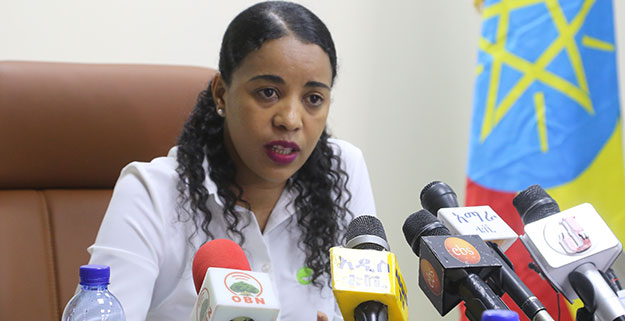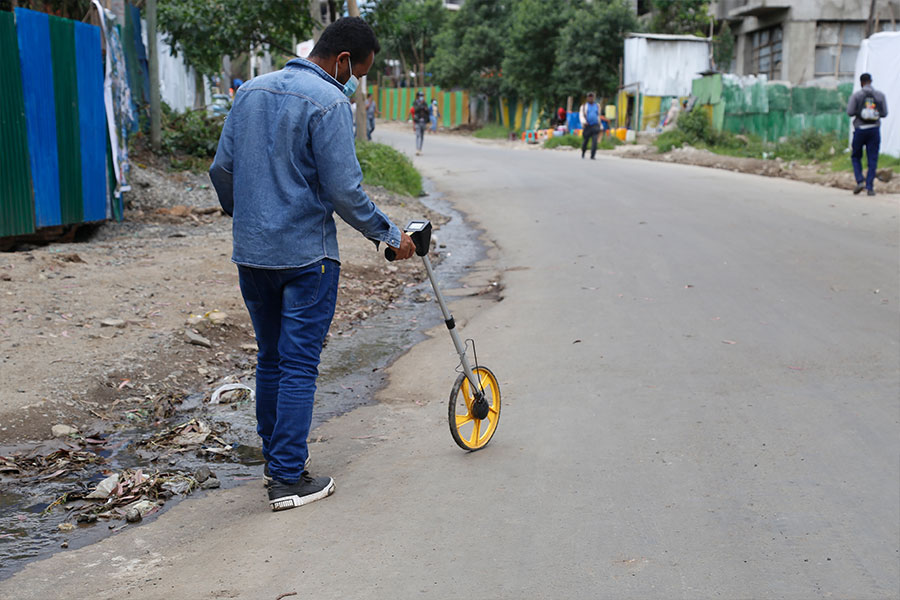
Commentaries | Apr 04,2020
May 15 , 2021
By Rodger Voorhies
In the year since the Novel Coronavirus (COVID-19) pandemic hit, economies across Africa have experienced a dramatic slowdown. Even countries with a limited initial incidence of the virus faced severe economic aftershocks. Significant disruption in agricultural markets and labour in sub-Saharan Africa has restricted income and led to rapid food insecurity for many.
Making sure emergency financial support could reach people quickly became a priority for many governments, but with lockdowns and social distancing, traditional means of distributing relief were often unavailable. Countries that had invested in making their financial systems more inclusive before the pandemic were able to mitigate the most severe economic shocks to households.
The ability of these countries to act wasn’t built on radical reinvention, but rather on effective use of established solutions that drive digitisation, growth, and inclusion. Of course, there is a limit to how much countries can expand financial access amid a crisis, so the time to upgrade financial regulations and infrastructure to drive inclusion is now.
As African and global leaders look to implement plans following discussions at the World Bank and International Monetary Fund (IMF) spring meetings last week about steps countries can take to rebuild their economies from the pandemic, they need not reinvent the wheel. There are ways countries can make their economies more resilient to future shocks including climate change, natural disasters and the next pandemic.
Primarily, countries should craft financial services regulations that provide space for companies and industry to innovate, while safeguarding consumers against risks, including data privacy and cybersecurity. When countries get their financial regulations right, the benefits of financial inclusion can accrue rapidly.
For example, mobile money penetration in Ghana tripled between 2014 and 2017, while overall financial account access increased from 41pc to 58pc. The catalyst for this remarkable growth was the Bank of Ghana’s introduction of new electronic money regulations in 2015, which permitted non-banks, such as mobile operators, to own and run mobile money businesses, while simplifying the process for consumers opening entry-level accounts. These reforms demonstrate how central banks can rapidly expand financial access, while maintaining safe and effective systems.
But upgrading financial services regulations is only part of the solution. Governments need to increase their ability to identify citizens and transact with them safely and quickly. Investing in inclusive digital payment and identity infrastructure is the second step governments should take to rebuild their financial systems and construct more resilient economies.
During the COVID-19 pandemic, countries with high levels of payment and ID connectivity could quickly identify and deliver payments to households eligible for emergency funds. Digital payment and ID systems eliminated the need for people to complete paper forms or contend with crowded lines to receive emergency funds; they could apply online or by SMS and be paid digitally. In Namibia, which has high ID uptake and enabling e-money regulations, informal workers could apply for assistance via SMS; approved applicants then received an e-wallet token that could be withdrawn at an ATM or used for digital transactions. Within three weeks, the government had distributed cash digitally to over one-third of working-age adults.
By contrast, countries with limited payment connectivity and identity systems had less effective options. Some governments had to physically deliver cash, while others relied on social protection measures, such as subsidising the price of food or fuel.
Fortunately, governments seeking to upgrade their digital financial systems need not start from scratch. They can make use of new, open-source payment and identity platforms, such as Mojaloop and MOSIP, built on best-in-class privacy, data protection, and cybersecurity frameworks. These innovations are already accelerating digital financial inclusion in several countries. Ethiopia and Guinea are exploring pilots based on the MOSIP platform.
The other step governments can take to build more resilient economies is to put women front and centre. A growing body of experimental evidence demonstrates that getting money into the hands of women to connect them to the formal financial system, can lead to long-term benefits, including more decision-making power in their household, and greater economic security.
Through targeted emergency payment systems, enabled by strong, inclusive digital financial systems, governments have bolstered economic activity and supported women during the pandemic. In Togo, the government set up the NOVISSI cash transfer scheme to support the most vulnerable citizens, whose daily income was disrupted by the pandemic. Through the program, more than 370,000 women in Togo received financial aid between April and June 2020.
A full understanding of the outcomes of rapid response measures undertaken by governments to alleviate the economic impact of the pandemic will take time. It is clear, however, that over the last year, governments have preserved millions of lives and livelihoods through judicious use of inclusive digital financial infrastructure.
As we emerge from the pandemic, governments have an opportunity to use lessons from the crisis to build the inclusive financial systems they will need to respond to future economic crises. By doing this, they can also position their economies for growth and resiliency in this digital century.
PUBLISHED ON
May 15,2021 [ VOL
22 , NO
1098]


Commentaries | Apr 04,2020

Life Matters | Jun 22,2024

Viewpoints | Dec 19,2021

My Opinion | Oct 02,2021

Commentaries | Mar 30,2019

Fortune News | Jun 23,2019

Radar | Oct 09,2021

Viewpoints | May 07,2022

Sunday with Eden | Apr 03,2021

Radar | Apr 19,2025

Photo Gallery | 175201 Views | May 06,2019

Photo Gallery | 165426 Views | Apr 26,2019

Photo Gallery | 155733 Views | Oct 06,2021

My Opinion | 136783 Views | Aug 14,2021

Dec 22 , 2024 . By TIZITA SHEWAFERAW
Charged with transforming colossal state-owned enterprises into modern and competitiv...

Aug 18 , 2024 . By AKSAH ITALO
Although predictable Yonas Zerihun's job in the ride-hailing service is not immune to...

Jul 28 , 2024 . By TIZITA SHEWAFERAW
Unhabitual, perhaps too many, Samuel Gebreyohannes, 38, used to occasionally enjoy a couple of beers at breakfast. However, he recently swit...

Jul 13 , 2024 . By AKSAH ITALO
Investors who rely on tractors, trucks, and field vehicles for commuting, transporting commodities, and f...

Oct 18 , 2025
The political establishment, notably the ruling party and its top brass, has become p...

Oct 11 , 2025
Ladislas Farago, a roving Associated Press (AP) correspondent, arrived in Ethiopia in...

Oct 4 , 2025
Eyob Tekalegn (PhD) had been in the Governor's chair for only weeks when, on Septembe...

Sep 27 , 2025
Four years into an experiment with “shock therapy” in education, the national moo...

Oct 18 , 2025 . By NAHOM AYELE
In a sweeping reform that upends nearly a decade of uniform health insurance contribu...

Oct 18 , 2025 . By BEZAWIT HULUAGER
A bill that could transform the nutritional state sits in a limbo, even as the countr...

Oct 18 , 2025 . By SURAFEL MULUGETA
A long-planned directive to curb carbon emissions from fossil-fuel-powered vehicles h...

Oct 18 , 2025 . By BEZAWIT HULUAGER
Transaction advisors working with companies that hold over a quarter of a billion Bir...